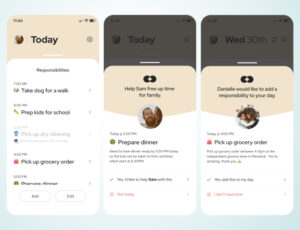Paying federal income taxes is a responsibility that all people need to take seriously. Generally, you will need to pay takes by the 15th of April each year. If you do not pay these taxes, you could face various penalties. While most people will pay their annual tax bill throughout the year through payroll tax deductions, there are situations when someone could be hit with a large tax bill. If you are not able to pay it on time, you may want to consider the IRS Fresh Start program.
What is the IRS Fresh Start Program?
Falling behind on your taxes can be a stressful experience. As soon as you are late on a payment, you can start to receive warning letters that will also detail new fines, interest charges, and late payment fees that are accruing. Eventually, the IRS can file a tax lien or levy against your important assets including bank accounts, your home, or your car. They also can take other actions, including wage garnishment or withholding future tax returns until they get repaid.
Fortunately, taxpayers are able to avoid many of these penalties by taking advantage of the IRS Fresh Start repayment program. This program is designed to make it easier for people to get caught up on their past-due taxes. It will allow you to pay back the taxes you owe over a six-year period without being charged additional fees and interest.
How to Qualify for the Fresh Start Program
If you have fallen behind on any tax payments owed to the IRS, it would be a good idea for you to take advantage of the Fresh Start program. However, there are various qualifications that need to be met in order to enroll in one of the repayment plans.
Income Maximum
One of the basic qualifications for the Fresh Start program is to have an income that falls below certain thresholds. For individual filers, your annual taxable income needs to be below $100,000. For those that are filing jointly with a spouse, the combined income needs to be below $200,000. For those who are self-employed, you will need to document a material decline in your income of 25% or more.
Maximum Past Due Taxes
The Fresh Start program is designed in a way that it could help the majority of taxpayers. However, those with significant past-due tax bills may not automatically qualify for Fresh Start support. In general, the amount of taxes that you owe to the IRS needs to be below $50,000. If you owe more, you may not qualify for this program but could still get relief and a payment plan if you discuss it with the IRS.
How to Stay in Good Standing
Generally, a Fresh Start payment plan will provide you with a six-year loan term to completely pay off your federal taxes. To remain in good standing, you should continue to make all payments on time. It would also be wise to not fall further behind on tax payments in subsequent years. Staying in compliance with payments and in good standing can help you avoid various penalties.
One of the most stressful situations that someone could deal with in their personal financial lives can come if they fall behind on their taxes. If you are behind on taxes, you could be affected by various penalties including wage garnishment, tax levies and liens, and fees and fines. Fortunately, through the IRS Fresh Start program, you can get back into good standing with the IRS and receive an affordable tax repayment plan that will help you stay in compliance and avoid penalization.




![Read more about the article [Product roadmap] The role tech played in the journey of Bharat-focused social media startup ShareChat](https://blog.digitalsevaa.com/wp-content/uploads/2021/04/PRM-1618306208266-300x150.png)




